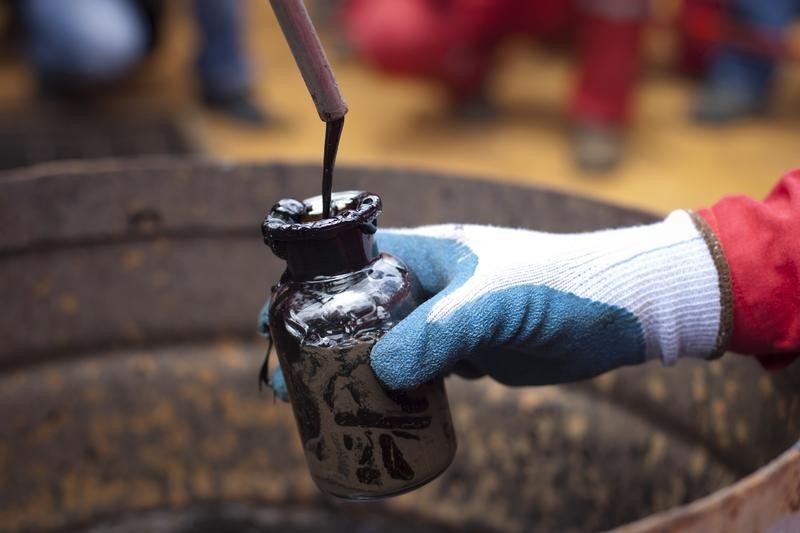By Barani Krishnan
Investing.com -- A surprise jump in U.S. oil output for August sent a frisson of concern across the oil market on Monday as traders took it as a possible sign of a production trend, sending crude prices tumbling in a market already on the edge over an impending rate hike, U.S. jobs numbers release and China’s COVID lockdowns.
New York-traded West Texas Intermediate, the benchmark for U.S. crude, settled down $1.37, or 1.6%, at $86.53 a barrel, after last week’s 3% gain.
London-traded Brent crude, the global benchmark for oil, settled down 94 cents, or almost 1%, at $94.83 per barrel, after last week’s rally of 3%.
Oil output in the United States climbed to nearly 12 million barrels per day in August, the highest since the onset of the COVID-19 pandemic, monthly government data showed.
U.S. President Joe Biden is also set to speak later in the day and call on oil and gas companies to invest some of their record profits in lowering costs for American families, Reuters quoted a White House official as saying.
"Biden will call on Congress to consider requiring oil companies to pay tax penalties and face other restrictions," the official said. The president has previously pushed oil companies to raise production rather than use profits for share buybacks and dividends.
Keeping investors across markets on tenterhooks were U.S. and U.K. rate hike decisions due in the coming days, and what the Federal Reserve, particularly, could say about impending policy.
The Federal Reserve and the Bank of England are all but certain to deliver jumbo 75-basis-point rate hikes on Wednesday and Thursday, respectively, as the battle against sky-high inflation continues.
Investors are also nervous ahead of U.S. jobs numbers for October, due on Friday.
While economists are anticipating 191,000 job additions on top of November’s 263,000, the trend for months now has been higher-than-expected jobs growth. If that happens again, the Fed could be emboldened to deliver another strong rate hike for December, versus expectations now for a moderate hike of just 50 basis points.
“The Fed, jobs numbers and China are checking oil longs at each point today,” said John Kilduff, partner at New York energy hedge fund Again Capital.
Chinese cities are doubling down on Beijing's zero-COVID policy as outbreaks widened, dampening earlier hopes of a rebound in demand. In Shanghai this week, the local outlets of Swedish furniture giant Ikea and Disney were among places targeted by Chinese authorities. The lockdown of the theme park, particularly, made global headlines as people were told they wouldn't be allowed out until they could show a negative COVID test result.
The lockdowns came despite China's central bank reaffirming its existing policy objectives in keeping liquidity reasonably ample and increasing credit support to the real economy.
